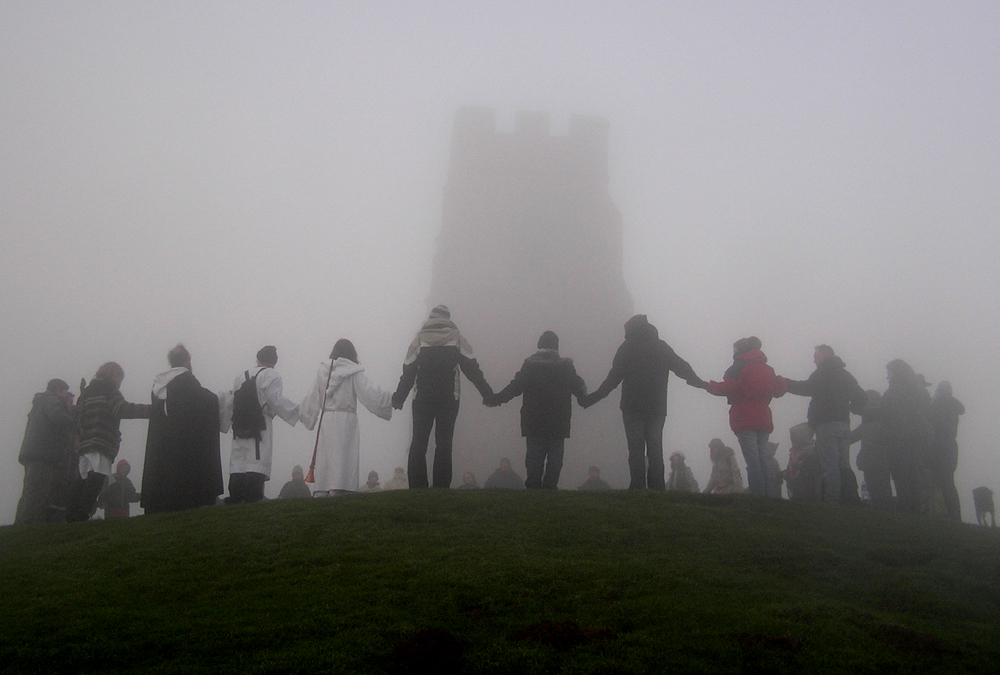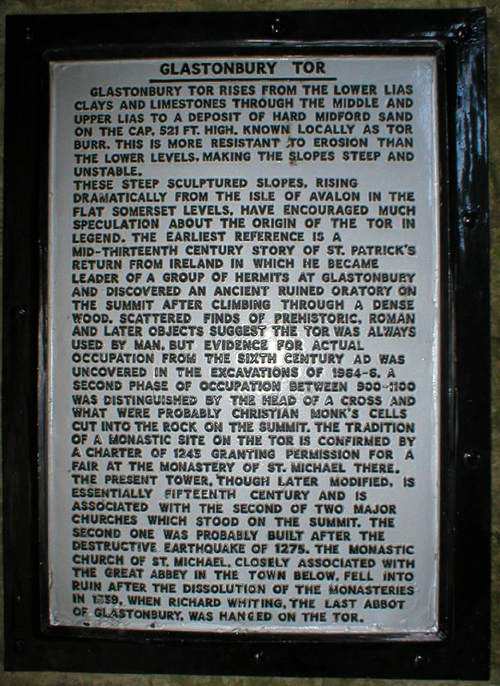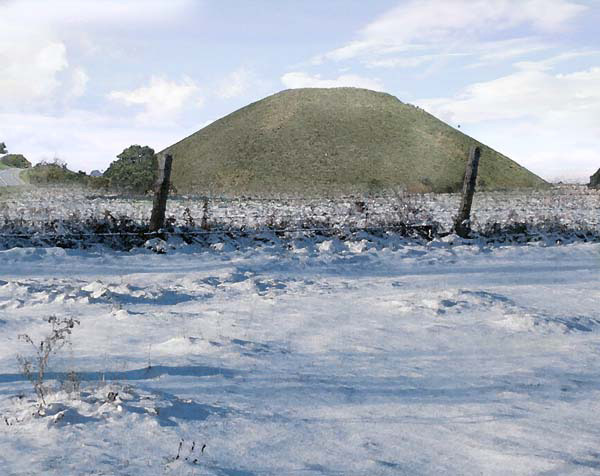


22nd December 2006 - the weather is cold and very foggy as we begin our climb
up the Glastonbury Tor, ready to welcome the Winter solstice sunrise.
You could not make out the silhouette of the tower until we reached the very
top of the Tor. The fog swirled around us and the usual magnificent view over
Glastonbury was nowhere to be seen. Our gathering grew as dawn approached.
There was singing, drumming, trumpeting, a circle celebration and drinking
of celebratory mead as we all celebrated the return of the sun and longer days
from now on - but the sun remained hidden in the fog!
Happy solstice to all!

The solstice circle join hands and welcome the sun. It's a foggy winter solstice on the Tor this year. The Glastonbury tower is dated around the 14th Century, and the cave beneath the Tor was believed to be used by hermits since the 7th Century. The Glastonbury Tor can be seen from miles around, and there is usually a magnificent view - not this morning! Singing, dancing and drumming to celebrate the arrival of the winter solstice - it helps to keep warm too - it's freezing!


Archaeologists made a surprise discovery at the foot of Silbury Hill in Wiltshire,
part of the Avebury World Heritage Site - remains of a Roman settlement. The
hill is the largest prehistoric structure in Europe, 37 metres high with a
flat top 30m in diameter and nearly 5,000 years old. The Roman road, that is
now the A4, changed its usual straight route to go around Silbury Hill, proving
that the Romans recognised the prehistoric man-made mound.
English Heritage scientists were carrying out a geo-physical survey before
restoration work to stabilise the hill begins. The new data shows a village-sized
settlement, consisting of streets and houses, the size of around 24 football
pitches. The scientific team used caesium magnetometers which pick up magnetic
disturbances in the soil, up to 1.5 metres deep.
It has been suggested by experts that Silbury Hill might have been a stop-over point for Roman travellers on their way to Bath to take the waters. It is also likely that the Romans would have been drawn to the sacred setting of a prehistoric site near to water - Winterbourne River and the Swallowhead Spring are close by.
Long, long ago in the town of Devizes, people began to speak ill of the devil,
so hearing of this he went to the town intending to dump a huge bag of earth
on them all. The people luckily heard about this and so sent their bravest
man to meet Lucifer. He carried with him a big bag full of worn old shoes,
and he tried to convince the devil that he had worn out all these shoes walking
from Devizes (when in truth it was only 5 miles away!) The devil, already tired
of walking, couldn't face the prospect of walking much further, so dumped his
huge pile of earth where he stood. This is why Silbury hill is where it is
today! There are many different versions of this tale, such as : the devil
was angry with Devizes because they had turned to Christianity, and that the
brave man who went to meet the devil, told him that when he had started his
journey from Devizes he was a young boy.
The purpose of Silbury Hill remains a mystery. Was it perhaps a viewing or
signalling platform? No burials have ever been found inside the hill. The mound
was used as a fortification during 11th and 12th Centuries, which is when the
terrace was made.
All information is a public resource of general information, which is intended be accurate, complete and up to date but is not guaranteed to be so. Your use of information on the Web Site or materials linked from the Web Site is at your own risk. This site carries externally created advertisements, the content of which is beyond our control and which should not be taken as being recommended or endorsed by us. By using our website, you agree to the use of cookies. This site is operated by Definitive Web. All content, information copyright Definitive 2001 - 2018.